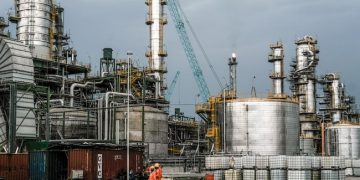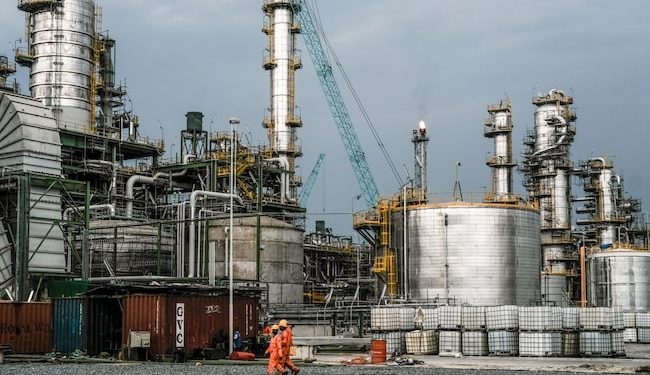By Enyichukwu Enemanna
As Nigeria, Africa’s largest population continues to grapple with shortage of petroleum products amidst import, a Pan-African investment research firm, Hawilti has predicted that the West African nation could become biggest oil refiner in the region by 2025.
In its recent report titled “Refineries watch Q4 2022” released on Monday, Hawilti’s report says Africa will witness significant transformations in its fuel supply security in 2023, adding that West Africa houses the largest refining capacity on the sub-continent, but only 23 per cent of it is currently operational.
It says the prospect of a new private refinery becoming operational in Nigeria could help redefine the nation’s local refining capacity.
“Both the opening of the Dangote refinery and the rehabilitation of state-owned refineries have the potential to make Nigeria Africa’s biggest refining hub by 2025,” it said.
It further states that the market is also driven by private oil producers and asset developers who are building modular refineries next to oilfields in the Niger Delta.
It stressed that historically, crude theft throughout 2022 has provided additional incentives for field owners to develop refining facilities and monetise their oil themselves instead of injecting it into third-party export pipelines.
“2023 could see movement on several of them, including expansion plans at existing facilities,” it said.
Hawilti in its report says the long-awaited Dangote Refinery, a 650,000 bpd single-train crude refining facility that has been a decade in the making, is finally expected to start production this year and that its commissioning is already sending hopes that it could finally start rebalancing Nigeria’s trade deficit.
“With all state-run refineries undergoing rehabilitation, Nigeria imports all its petroleum products, and heavily subsidizes gasoline. It needs the Dangote Refinery to decrease imports, generate currency savings, fight inflation, and ultimately improve its macroeconomic outlook.
“Africa’s biggest oil producer has also embarked on the rehabilitation of its three state-owned refineries in Port Harcourt, Warri, and Kaduna totalling some 445,000 bpd of refining capacity.
“Tecnimont continues to make progress on bringing Port Harcourt’s complex back to 90 per cent of its capacity while Daewoo E&C was selected in 2022 to execute two “quick fix” projects at both Warri and Kaduna,” it said.
The report said Ghana is currently faced with a worsening fiscal crisis as global oil prices put pressure on its finances.
It said Ghana is a net importer of petroleum products, just like most African markets, despite producing crude oil and housing refineries.
“With the prices of petroleum products reaching historic highs this year, the country is faced with an increasing import bill that puts pressure on its ability to meet budget requirements,” the report said.



































